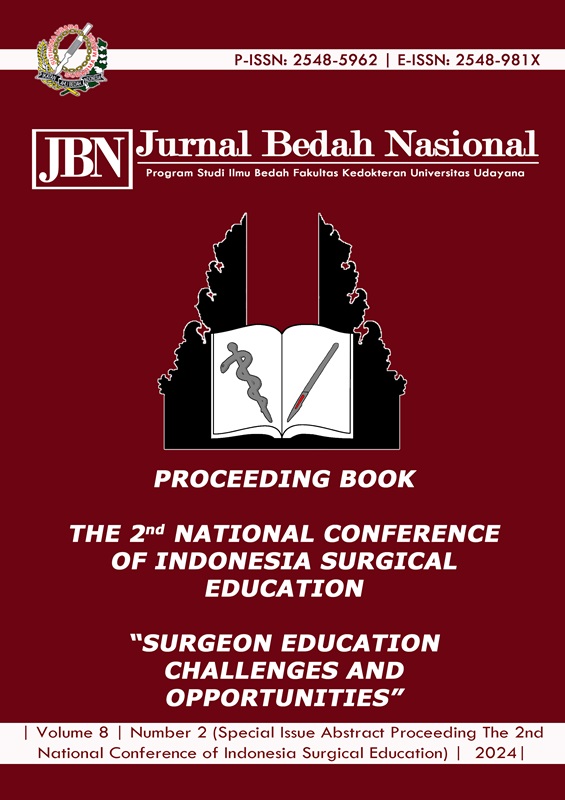005. The Role of Interleukin-8 in Assisting the Diagnosis of Necrotizing Enterocolitis (NEC) Bell’s Stage I and II in Premature Infants: Literature Review
Abstract
Background: Necrotizing enterocolitis (NEC) is one of the leading causes of morbidity and mortality in infants, commonly associated with extremely low birth weight (ELBW), low birth weight (LBW), and prematurity. The clinical symptoms are nonspecific and various. This poses a challenge in the early diagnosis. The incidence worldwide ranges from 0.3 to 2.4 per 1,000 live births, with mortality rates reaching 50%. This study aims to assess the role of biomarker IL-8 in diagnosing NEC Bell's stage I and II. Methods: This study is a literature review, conducted electronically in databases including Cochrane Library, PubMed, ScienceDirect, and EBSCO using the keywords: ("Interleukin-8" OR "IL-8") AND ("Necrotizing enterocolitis" OR "NEC" OR “Early NEC” OR “Stage I-II NEC”). Inclusion criteria are study in human, English fulltext within 5 years. Exclusion criteria is comparing NEC any stage with control patients, Results: Based on a review of 23 literatures, there were 6 studies met the inclusion criteria for analysis. IL-8 shows varying sensitivity and specificity as a serum biomarker for diagnosing NEC. Statistical evaluations in previous studies emphasized that significantly elevated levels of biomarker IL-8 were predominantly found in the serum of premature infants with NEC, indicating it could be a potential biomarker for diagnosis with NEC Bell's stage I and II. Conclusion: The measurement of biomarker IL-8 in blood has not yet been established as a reliable diagnostic modality for NEC Bell's stage I and II, indicating the need for further investigation.
Downloads

This work is licensed under a Creative Commons Attribution 4.0 International License.
Program Studi Ilmu Bedah Fakultas Kedokteran Universitas Udayana. 
This work is licensed under a Creative Commons Attribution 4.0 International License.






